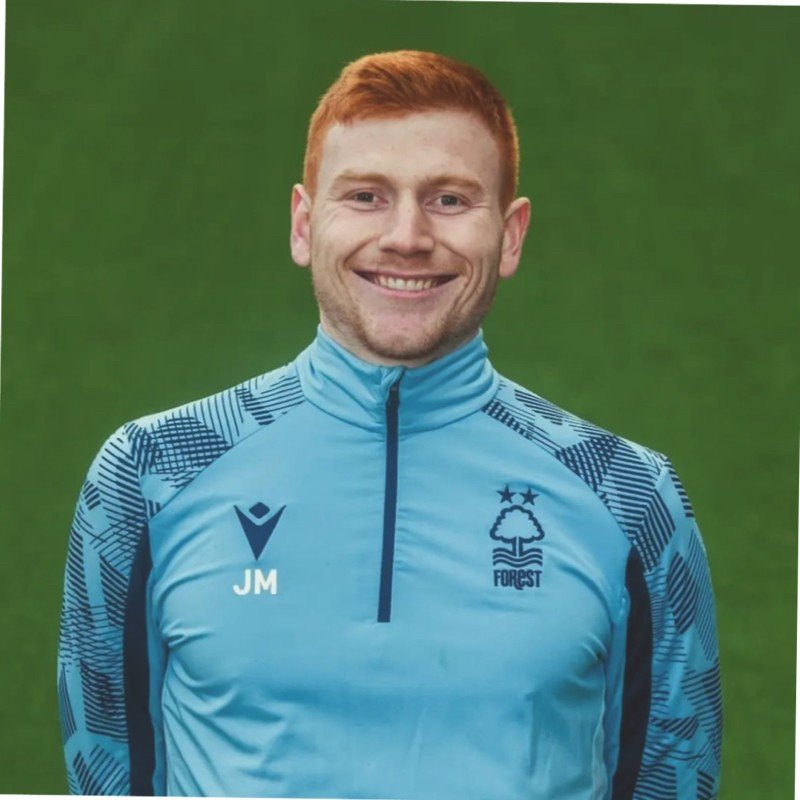
Jonas Munkvold
Individual Development Lead & Analyst at Nottingham Forest U18
From Oslo, Norway, currently a student pursuing a UEFA A Licence. Joans serves as the Individual Development Lead Coach for U15-18, an Analyst for the U18 at Nottingham Forest FC, and contributes as an analyst for the Men's National Team at Northern Ireland. Before this, Joans was co-founder and performance analyst with RDA Coaching.
How would you define a parent’s role within the youth sports environment?
Young people should be stretched & challenged at the same time as they are supported. The balance of this is different for each individual. The parent and coach share a responsibility in this regard – if we make it too comfortable the child may become demotivated and bored, if we make it too challenging the child may become demotivated and anxious. Together, coaches and parents must try to find a good balance for each child.
What advice would you give any youth sports parents, with a talented son/daughter and ambition also drive to reach the highest level?
Advice to the player
I often preach that players should look for learning in every activity. Be prepared to learn and conscious of what you want to learn/practice today, then monitor that through training. If you during or afterwards discover that you are not behaving accordingly you have to reflect on why, and make sure to do something different next opportunity. Once you start this process of self-regulated learning you will discover a life-skill which will help you on and off the pitch.
Players who regularly do this, and take responsibility of their own development develop skills which will help as they get to higher levels of football.
Advice to the parents
Regardless of how talented the child might be (we don’t know the right answer to this anyway) parents can use sport as an arena to teach life skills. Talk about how the child can deal with the context of team-mates and team-sport, how to deal with challenges and how to learn from defeat and wins. These are a few examples of “thinking tools” which will help the child both on and off the pitch as they grow older.
Try to avoid telling them all these lessons, as they are unlikely to take your word for it before experiencing it themselves, so try to teach using questions, metaphors and relatable stories. Avoid the lectures, nobody likes them.
What advice would you give coaches/clubs regarding youth sports parents?
Educate and communicate. Inform parents how their child will be challenged and supported during the season, and ask them to support this process at home while being open with club/coaches about any individual issues or questions.
I have heard of clubs inviting parents to coaching courses, this might be a step in the right direction but not specific enough. It might also give the parents a false sense of coaching competence. Maybe it is time for clubs/FA’s to design a football parent education course? Where parents learn about some of the ways they can help their child enjoy and develop, while learning both sport- and life skills.
What advice would you give youth sports parents for the car journey to and from youth sports practices and/or games?
Ask good questions and listen. Hold your child responsible and accountable for what they say, and that they act accordingly – but as a parent, not a coach. Your child will appreciate the consistent expectations and different roles. Good questions encourage reflections and aims for future practice. You could help nudge the conversation in a certain direction, but try to leave the topic and reflections up to the child.
Good questions can be such as:
How did you perceive the game/training today?
What did you learn (or practice) today?
Remember: your child will not become good at these processes unless you allow them to explore them. Would you expect them to develop the ability to reflect if you always take the initiative and make them the passenger in the conversation? Good questions are rarely easy to answer, so give them time to think and reflect before telling them what you think the answer might be.
What types of behaviours/mannerisms/comments would you encourage parents to demonstrate?
Display the behaviour you want of your child. Some parents will speak badly of referees, coaches or other players – would you be proud if your child spoke like this to their friends or peers?
You are not the coach, so by shouting instructions from the sideline you are most likely just adding confusion to the children. Instead, try to encourage the child to try their best and always be a good team-mate. These are behaviours we know leads to better team performance, and most likely also to higher level of engagement and enjoyment.
Thank you to Joans for taking the time to complete the following interview questions.
Twitter: @CoachMunkvold | Website: https://jonasmunkvold.selz.com









